A new way to travel
Hi – I’m Amy, founder and president of GreenLuxe, and I am obsessed with everything travel and how to protect it. It all started from a young age. I can vividly remember loving EVERYTHING about driving to Florida with my family when I was little. From sleeping in the car (I think my parents drugged me) to stopping at the Florida citrus stands along the side of the road (anyone who was born in the 60s, 70s, and MAYBE 80s knows the nostalgia of these fun roadside stands) and their pecan rolls.
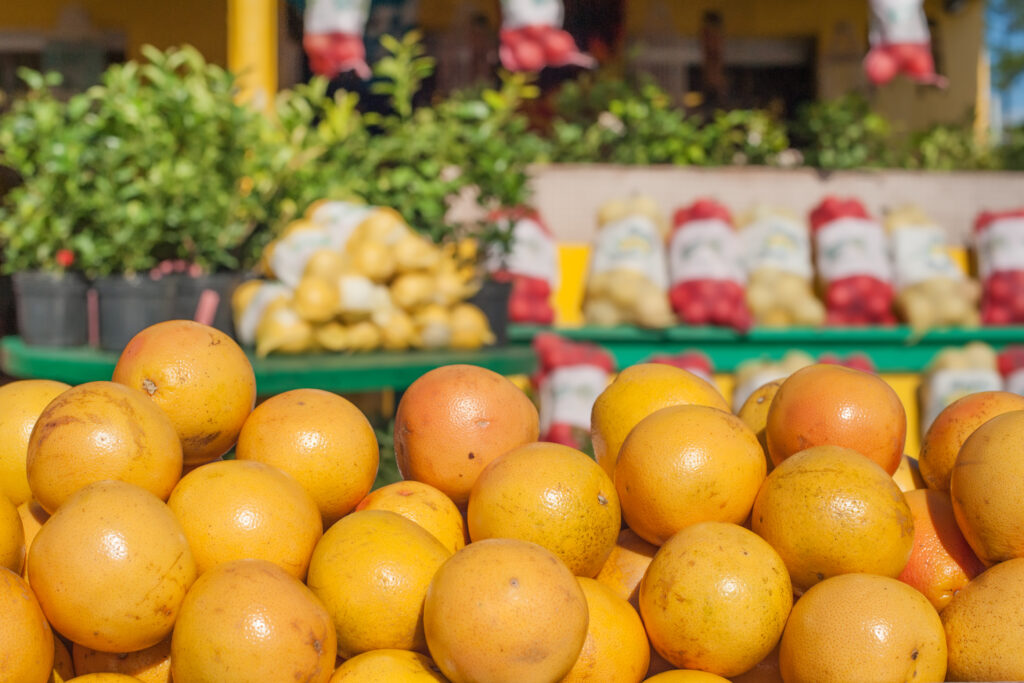
Roadside market stall with oranges in Florida
But what I vividly remember the most is the distinct smell of the Holiday Inn. It may be a bit distorted from yours—but it was pure heaven to me. I felt like I had “arrived.” I was a
Holiday Inn “boss,” you could say. I knew where everything was, and the minute we got there It. Was. On! I might as well had been given a name tag, because (at 7 years old) I felt as though I could have jumped behind the desk and checked people in. By the morning, I could barely contain my excitement to devour a travel-size box of Frosted Flakes. Then, off we would go to our final destination.
As I got older, my love and passion for travel only got stronger – along with my love for animals and the environment they call home. Unfortunately, it was hard to align those passions with a professional career so I chose to pursue a career path using what I found to be strengths in sales and marketing.
The crazy part is, in hindsight, it was all leading up to this very minute. It really is true that all life’s moments lead to where you are supposed to be. I was moving to different cities and working alongside hospitality brands in a supplier capacity and learning the inner workings of a hotel business. I even ended up working on cruise ships for many years! This would be where I started to feel out of alignment with my values and began the search for something greater.
From afar, I would watch thousands of guests come on and off the ships, pouring into our ports of call and creating immense amounts of waste. No one was paying any attention to how their presence was impacting the local people, place, and surrounding biodiversity. I was also witnessing the same kind of disregard by the cruise lines. However, I want to state that the cruise industry has come a long way and is making strides to right environmental wrongs and move toward a more intentional way of doing business in order to protect the ocean and the places the cruise lines visit.
I was finally faced with a crossroads and after living in California, Chicago, and Miami, I started planning to come back to Columbus, Ohio, and soul search in order to find a way to align my passions into a career where I felt as though I was making a difference. Once home, I decided to enroll in Ohio State’s new program – at the time called EEDS (Environment, Economic, Development and Sustainability) – and simultaneously get a degree in wildlife management. I wasn’t sure where this would lead, but it seemed like a good starting point!
It wasn’t until a trip to Tahiti that I was introduced to the idea of developing programs and technologies for hospitality that would preserve and protect our natural world. When I came home from that trip, GreenLuxe was born. I didn’t know how it would happen but I knew that I was so motivated and committed I would find a way to combine my love for travel and hospitality with my passion for saving animals and their homes.
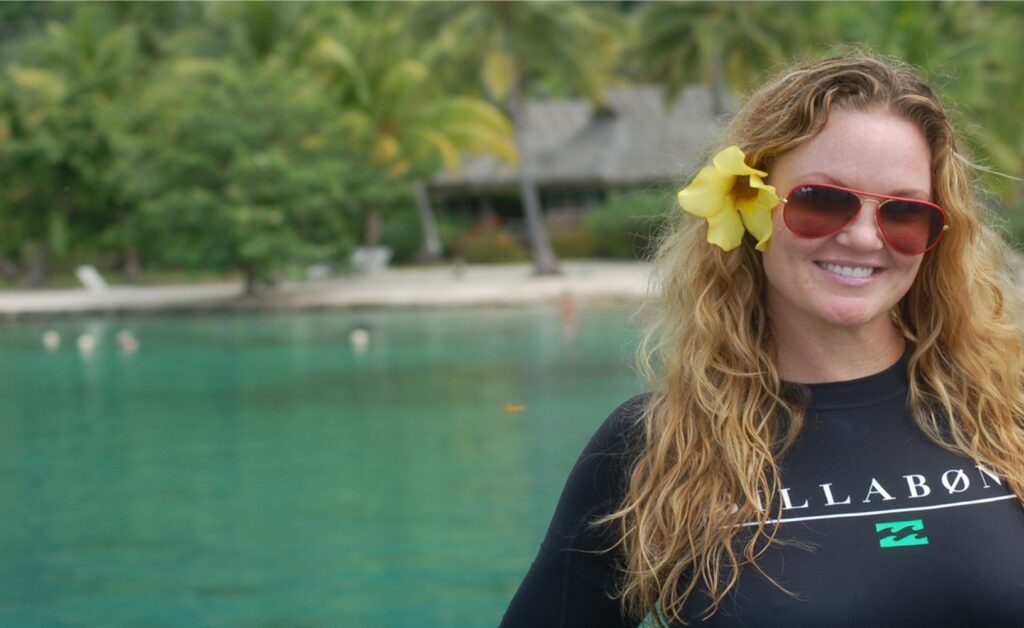

Overwater bungalow at the Intercontinental Bora Bora
What is sustainable tourism?
Let’s back up. For most of you, this isn’t the first time hearing the words “sustainable tourism.” But in a world of buzzzzzz, let’s take a deeper dive into what it means and what it doesn’t.
There are a lot of words being thrown out these days in regard to this topic – “conscious travel,” “purposeful travel,” and “regenerative travel” – but for the sake of keeping things consistent, let’s just call it “sustainable,” which the World Tourism Organization defines like this: “Sustainable tourism is an industry committed to making a low impact on the environment and local culture, while helping to generate future employment for local people. The positive sustainable tourism is to ensure that development is a positive experience for local people; tourism companies; and tourist themselves.”
One thing to take notice of is how the beneficiary of “doing good” is not necessarily the tourist. I get it, that may be up for interpretation, but I think the important point is in the past, a vacation or trip was meant to benefit the person traveling, and not much thought was given to how the people and community in the places being visited were considered. I know what you may be thinking, of course they are, they benefit economically. This isn’t always the case. If the hotel or business was located in another country and/or didn’t employ local people, the money would completely bypass the locals and get funneled into a different place entirely. Fortunately, those days are on their way to being a part of the past practices.
Now we understand what sustainable travel is, but what is it not?
Sustainable travel is not a hotel recycling, having electric vehicles or a couple of initiates that check a box under the umbrella of sustainability, and marketing themselves as an “eco-friendly hotel.” You may be thinking, but isn’t that better than not doing anything at all? Of course, but what the pandemic revealed (like so many things) is we have to have a mindset shift and ensure everyone affected (known as stakeholders) is impacted positively. The 3 P’s in sustainability are: “People, Profit, and Planet.”
From an idea to a business model
It was all still an experiment, creating a framework of different ideas and strategies that I believed would be a way to teach people to take more care and thought in their travel experiences and beyond. At each destination I visited, I carefully selected for the attention they were paying to sustainable travel and ways I could learn from them. From strategic partnerships with community needs like “pack for a purpose” to restoring historic buildings to reduce construction waste to planting new corals in the ocean as an activity that guests could get involved with. I interviewed every general manager and got their perspective and motives behind what was being done. I was also very interested in how the guests viewed these hotel initiatives. But what blew my mind in most scenarios was the lack of communication with the guest on what the hotel was doing to adopt eco-tourism practices. To me, this was a huge missed opportunity. Wasn’t it the point to not only take care of the community you are visiting but also take home a new point of view and practices that could be implemented in your own home and community? I knew this would be where I would focus! “Turning the traveler into a conservationist” had to be built into the reasons a hotel was making this effort.
As I found myself close to graduation I was faced with what I would do for an internship. I knew that as a 40-year-old woman who had worked many jobs – benefiting from sitting in an office was not going to do it. After many months of not backing down and convincing my advisors this would be beneficial to my career, I had carved out my own “travel abroad.” I had located an ecotourism company in Sumatra (in Indonesia) that was doing its best to protect the only rainforest home to my “spirit animal” – the orangutan. OK, so I had a few motivations here. Of course, it was to study grassroots eco-tourism but it was also to see my orange furry friends in their home and not behind glass at the zoo.

Visiting a sacred place in the rainforest with my new friends in Sumatra
I got to experience so many valuable tools: understanding the community impacts of tourism, how consumer goods affect communities, and the balance between tourism and conservation. Let’s not forget how to live without running water or toilets — those were not the highlights, but were valuable.
Saying this trip was life-changing would be a gross understatement. It has been instrumental in identifying my purpose on earth, confirmed my passion, commitment, and focus, and made me so much more of a grateful person. The kind people of Sumatra that I met were so gracious to host me and taught me how they were fighting to keep their homes and their surroundings wild and free from corporations destroying the forests in order to harvest palm oil, rubber, paper, and so many other products first-world countries demand without knowing how it affects the people living there.
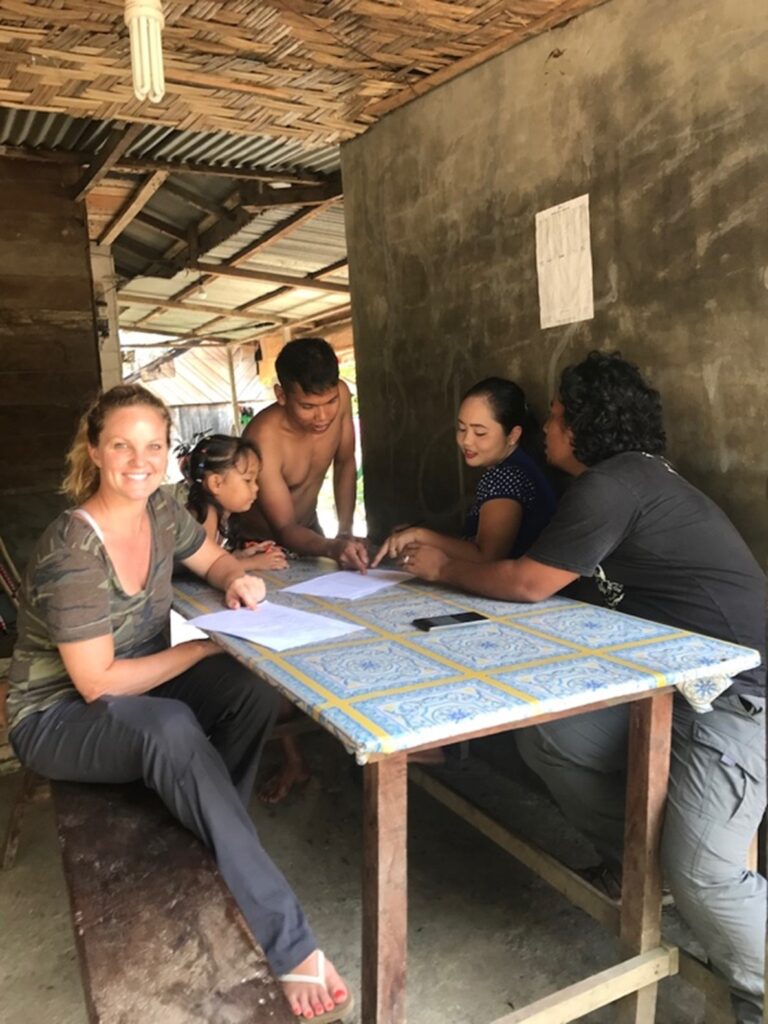
Discussing how the locals felt ecotourism was affecting their lives in Sumatra
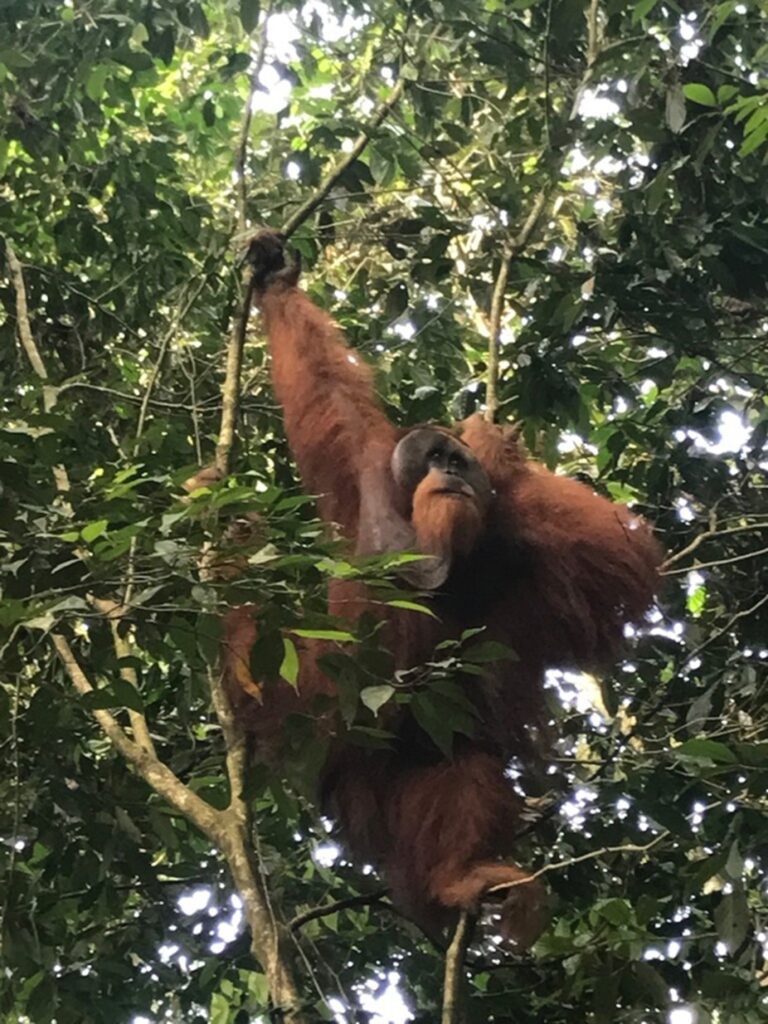
Male orangutan in the forest in Leuser Ecosystem
More tools in my arsenal
Since graduation and my life-altering trip to Sumatra. I have sought out the most aligned certifications that would help me advise a hospitality and/or tourism group on where they can make changes in their organization and create purposeful cultures, such as LEED (Leadership in Energy and Environmental Design), which helps buildings achieve green building standards; GSTC (Global Sustainable Tourism Council), which creates frameworks and standards to uplift communities in destinations; and IWBI (International Well Building Institute), which implements improvements in indoor air quality; and many others.
The current state of the marketplace
As I was achieving new accreditations and becoming more and more clear about how my business would be realized into a leader in sustainable hospitality solutions – COVID-19 arrived and turned the industry on its head. Bringing tourism to a complete halt. We all know how important tourism is, but it’s hard to imagine just how much of an impact it plays on our global economy.
“Travel & Tourism generated $7.6 trillon (10.2% of global GDP) and 1/10 jobs in the global economy.” – WTTC
This disruption from COVID-19 caused the industry to start thinking of its impact differently. Sustainability was already starting to be discussed but this catapulted its priority. It also put a focus not just on the environment but also on how hospitality workers are treated and that providing communities jobs and benefits from tourism is essential. This is largely due to an increase of travelers demanding that changes happen. A Booking.com global survey released in June laid bare the new expectations of travelers: Some 83% of 29,000 respondents said they found sustainable travel to be vital, with 61% noting that the pandemic had increased their interest in traveling sustainably. In addition, on Sept. 22, 2021, a groundbreaking announcement from Google. The company would be rolling out its new “Eco-Certified Hotels.” In global search results, it would identify a leaf-shaped icon next to the hotel’s name. The new feature relies on 29 certification programs to do the hard work of establishing a hotel’s green credibility; the property must have an array of sustainability measures audited by third-party experts. No longer could an organization just advertise they were operating sustainably; now they had to have proof they were!
Although I believe this is long overdue, I am so thankful for the progress and know that a meaningful vacation is not only one that is enjoyed through relaxation, new experiences, and culture, but one that is thoughtful and leaves a place better than the way one found it.
GreenLuxe does not just want to help hospitality and tourism organizations increase their impact and purpose. We want to help you make better travel decisions by guiding you to make informed choices on the destinations and hotels you choose. We also want to show you different ways of lightening your impact on your way there, when you get there, and when you leave.
I am so thankful to be on this mission and hope you will join us in “Turning the traveler into a conservationist”! Our planet needs you and has so much to offer; if we just make our decisions a little more intentional we can achieve so much together.
“It’s surely our responsibility to do everything within our power to create a planet that provides a home not just for us, but for all life on Earth.”— David Attenborough

West Bali National Park
To learn more about GreenLuxe, please visit us at: www.greenluxeinc.com.
And to learn more about how to protect the only place in the world where Orangutans, Bears, Tigers, Rhinos, and Elephants live together, go to: www.RAN.org
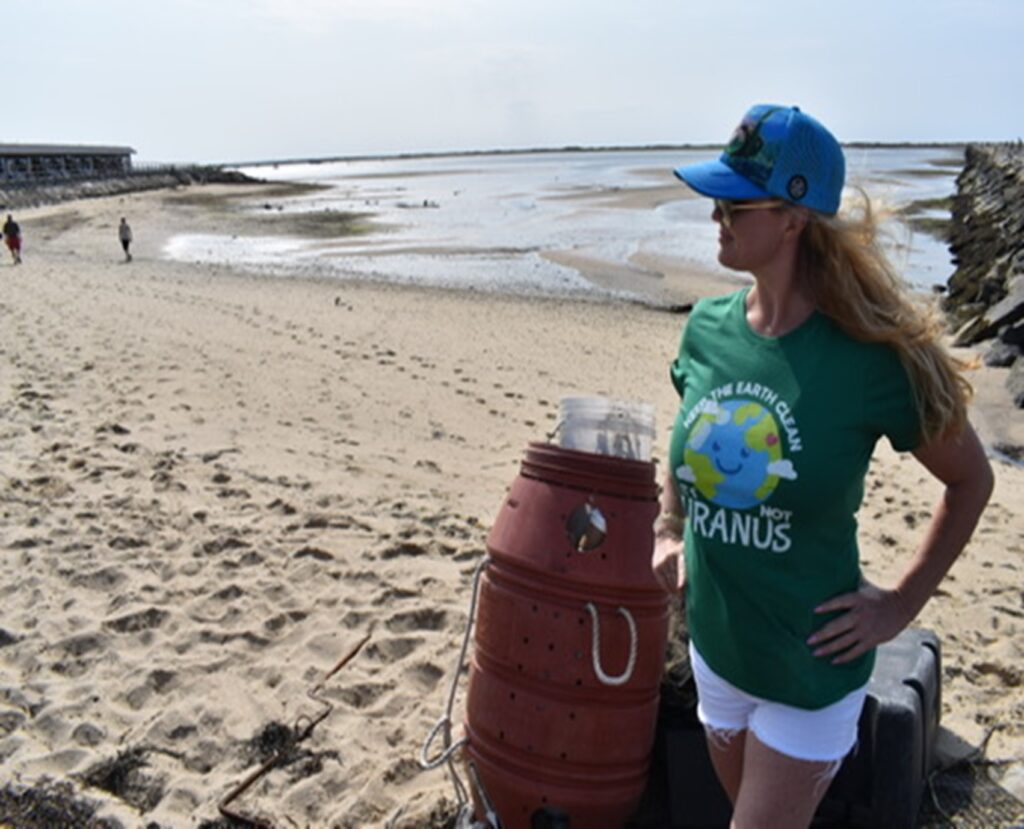
“Keep the earth clean. It’s not Uranus” – Cape Cod, Massachusetts
Dreaming of my next adventure,
XX Amy

Recent Comments